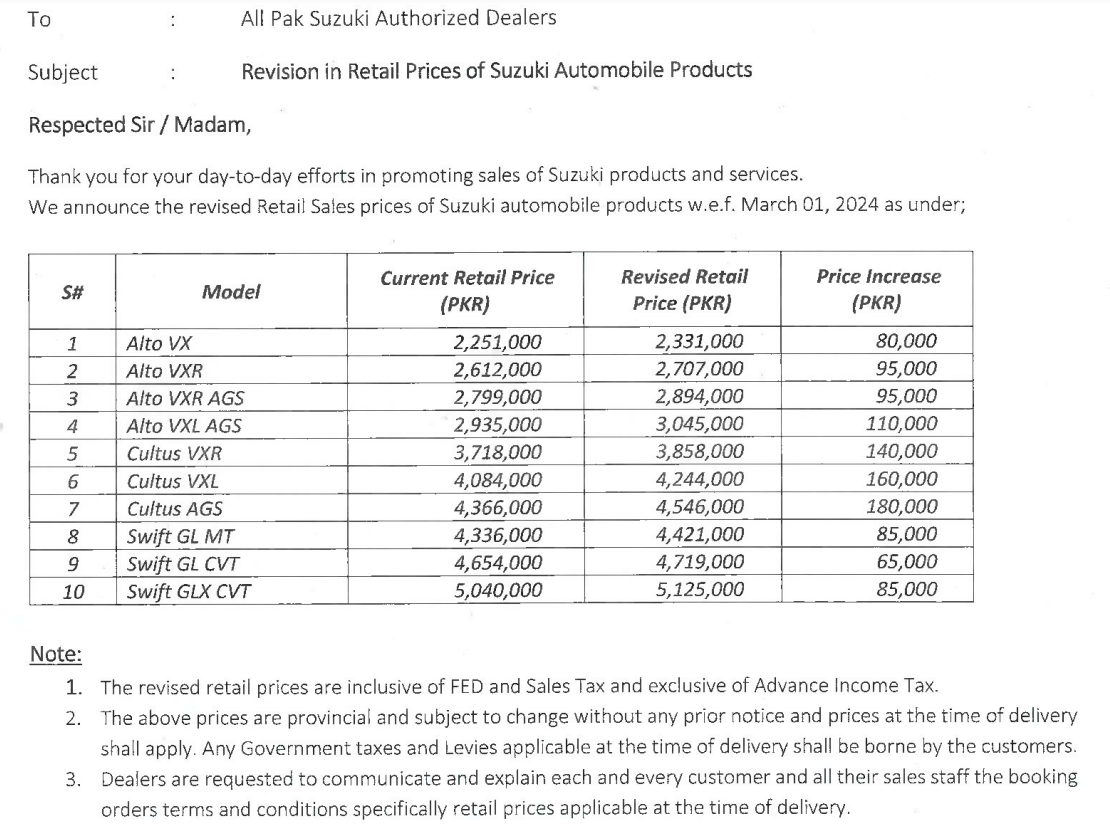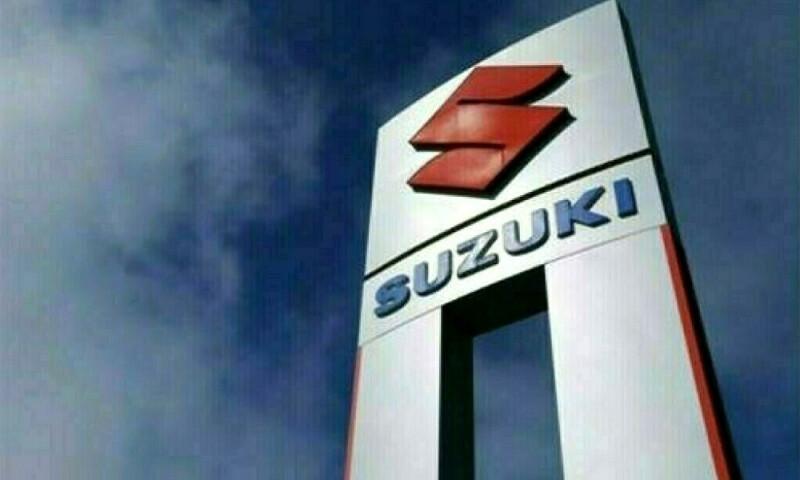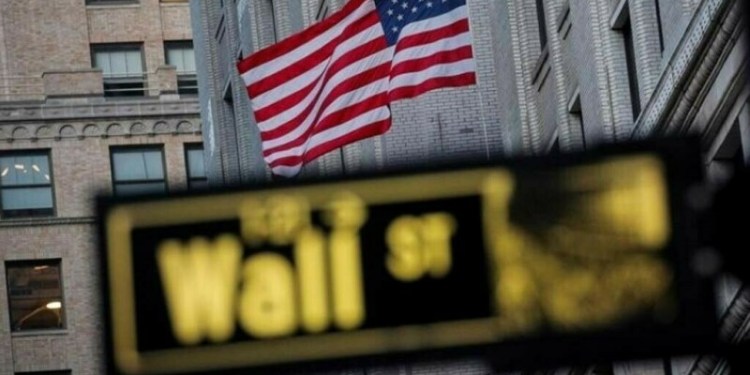Pak Suzuki has jacked up its car prices by up to Rs180,000, blaming inflation and an increase in its overhead expenses.
According to the new rates shared by the company with its authorised dealers, Pak Suzuki has raised the prices in range of Rs80,000 to Rs180,000.
The new prices take effect from March 1, 2024.
“Keeping in view inflation, increased overhead expenses, increased international raw material and accessories cost, and shipment/freight charges, it became difficult for Pak Suzuki to hold the prices,” Shafiq Ahmed Shaikh, Head of Corporate Affairs, told Business Recorder.
Suzuki Motor proposes purchase of minority shareholders’ stake at minimum Rs406 per share
After the latest prices increase, hatchback Alto’s top of the line model Alto VXL AGS will now be sold atRs3.045 million, a price hike of Rs110,000.
The highest price increase has been seen in Cultus AGS, which will be sold at Rs4.546 million, after a price increase of Rs180,000.

“In addition, especially due to Red Sea matter, which is not in our hands, it is a very critical time for Pak Suzuki to control prices due to significant increase in the freight expenses. There is no certainty as to how long this matter will continue,” said Shafiq.
“So, we are compelled to pass on a very minimal portion of this adverse impact through price increase on some of our products.”
Brokerage house Arif Habib Limited (AHL) research analyst Muhammad Abrar Polani said as the demand recovered a bit in January, the hike in car prices was anticipated because companies were waiting to pass on the inflationary pressure.
“It won’t impact sales much given the price hike is minimal,” he said.
Another auto sector analyst Usama Rauf, who works at AKD Securities, said the prices were increased to mitigate the impact of GST hike from 18% to 25% for cars valued at over Rs4 million.
“Although this change was announced through news channels, the official SRO has not yet been uploaded to the official site. To recall, the government increased the GST for cars above 1400cc to 25% from 18% in March 2023, but this time they’ve extended it to include cars with a value exceeding Rs4 million in that category.
“Certain models of Cultus and Swift fall within this category and to mitigate the impact on the company’s gross profitability, Suzuki has opted to raise prices across their passenger car offerings,” he added.
First month of FY24: Car sales down 57% YoY as rising prices suppress demand
“Expected GST impact for all vehicles in this category shows that there is an impact on some offerings from the company. However, Suzuki has chosen to streamline their overall prices across offerings, effectively increasing prices to counteract the GST increase.”
Based on calculations, according to Rauf, the price hike almost equally offsets the impact of the GST increase on the current sales mix, ensuring that gross margins remain intact post-GST change.
“Further, the auto sector as a whole seems to be passing on any cost increase impact to customers by raising car prices, even amidst depressed demand. This trend is apparent from the continuous price increases observed over the past two years. I believe their strategy is to avoid taking a hit on profits by maintaining prices at a higher point, though demand is already depressed,” he said.
It may be noted that Pakistan’s headline inflation clocked in at 23.1% on a year-on-year basis in February, Pakistan Bureau of Statistics (PBS) data showed on Friday, much lower than the reading in January when it stood at 28.3%. On a month-on-month basis, the reading remained unchanged.

Source: Brecorder





























